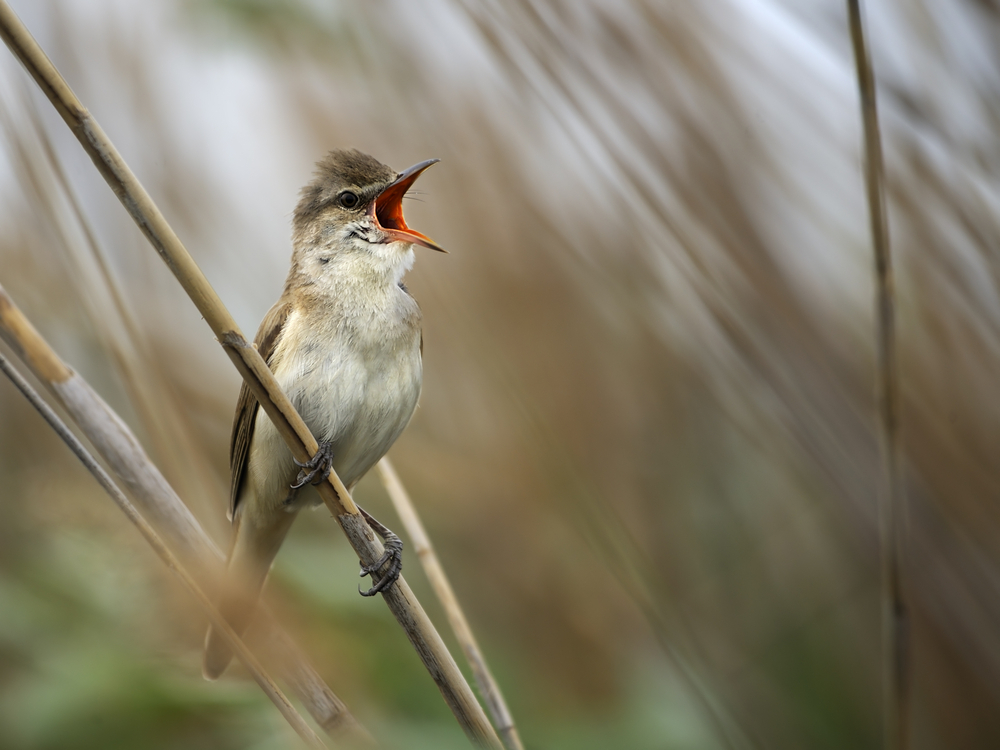
Some 65 per cent of male European songbirds who leave their northern homes to seek the sun during the winter, spend the off season stretching their vocal chords and rehearsing how to hit the high notes. That might be considered a bit strange when they could be conserving precious energy instead, before a long flight home and busy mating season that lies ahead.
Palearctic-African migrants, including species such as Europe’s great reed warblers, have been heard singing their little hearts out whilst overwintering in sub-Saharan African locations like Zambia, where Dr Marjorie Sorensen from Cambridge and Frankfurt Goethe University has been carrying out a pioneering field study. And the songs the biologist has been recording are not in the style of territory claiming anthems, so they’re almost certainly flirty mate-attracting tunes.
But, as she herself asks when writing in American Naturalist: ‘Why are they doing this when they’re thousands of kilometres from any possible breeding opportunity?’
Previously it was thought that the songs were of a territorial nature, or linked to testosterone levels, but Sorensen’s findings suggest the singing is more likely to be a performance improving technique. If it is indeed dedicated pulling practise, to ensure they’re on-song when they arrive back in Europe and begin a serious search for a mate, the chirpy crooners are investing valuable energy to get themselves match fit.

Male reed warblers typically have a repertoire of between 40 and 60 sounds, but belting them out means expending 50 percent more energy than the birds would normally use whilst resting. Singing sessions also expose them to potential predators and cut into valuable eating time, crucial to building of strength for the return commute.
But—particularly in dull-coloured species, where the voice has evolved to be the primary tool of attraction—the females are known to prefer males that have mastered more complex songs, so putting in some serious warbling practise will probably pay off and improve their prospects of passing on groovy genes.
Some species, such as the marsh warbler, have even been caught pinching musical styles from native African birds, weaving the exotic motifs into their own songs to jazz up their repertoires and impress the ladies back home, increasing their chances of reproductive success.
